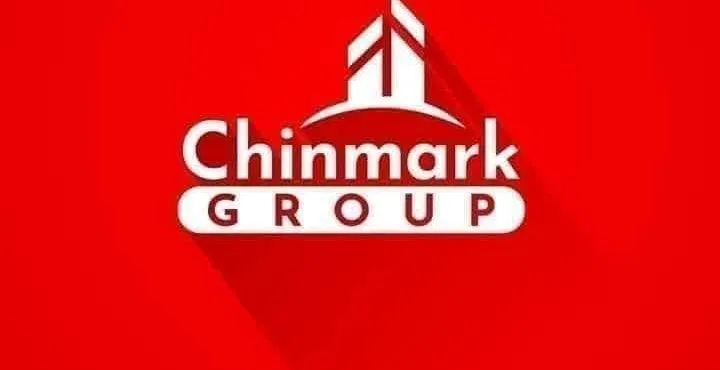Ponzi scheme is an organized financial fraud targeted at investors based on the promise of high returns on investment (ROI). The failure of the scheme is guaranteed right from the start, but often well-disguised as preliminary success. Thus, at the early stages, which may run into a couple of years, all will seem well, as some investors may receive their returns (which they may re-inject into the scheme) while new entrants will find their way in until a considerable number of people would have generated large funds.
In what may appear as a sudden twist of events, the plane will come crashing and there may be no survivors except those who disembarked from the ill-fated flight of disaster. Unlike in typical air crashes, the pilot, the chief promoter of the scheme, and his crew often survive because, being the architects of the doom, they have everything worked out and their parachutes are intact.
Examples
Not too long ago, Maxwell Chizi Odum and his company, MBA Trading and Capital Investment Limited (MBA Forex) allegedly made away with about N213 Billion Naira. We have also heard of Akor Philip Paul of Benignant Forte Nigeria Limited, Dominic Joshua of Brisk Capital Limited, Harrison Osemwengie of HO Corn Farm, Adewale Jayeoba of Wales Kingdom Capital Limited etc, being architects of investment tragedies in Nigeria.
Any Lessons?
But has Nigerians learnt any lessons? It is doubtful. Over time, these ponzi scheme operators appear to come up with intelligent and well-organized system of commanding the interest of the public. Some have learnt to bring a bit low the percentage rate of ROI. This is to divert attention. The more realistic it looks, the more the scheme will be considered authentic. Others have moved to make available physical places of business and demonstrate trading and business efforts, with workers scattered around several business locations as signs of progress and expansion. They claim to operate in various sectors of the economy – agricultural, technological, real estate, cryptocurrencies, hospitality, etc. Imagine Global Solution Limited (IMG) and Chinmark Group Limited played out the script perfectly.
IMG
Bamise Ajetumobi of Imagine Global Solution Limited (IMG) – started a micro lending business that was allegedly meant to provide trading capital at the grassroots level, basically focusing on the unbanked. From this point, Bamise and his company claimed to have needed more funds to take advantage of the opportunity available in the business after analyzing the funding gap. They attracted lots of investors who invested in the business with the hope of receiving adequate returns. The major source of attraction for the investors was an elite advisory board set up by Bamise which was made up of men and women of great pedigree. As time revealed, Bamise allegedly falsified the financial status of IMG. The Advisory Board members were always kept in the dark by Bamise and Elizabeth, his wife, regarding the true affairs of IMG. For instance, without the knowledge of the Advisory Board members, Bamise and his wife, Elizabeth, allegedly converted IMG from a company dealing in licensed money lending business to a ponzi scheme platform. Many got the heat. Lots of money were lost.
Chinmark
In the case of Mr. Marksman Chinedu Ijiomah and his company Chinmark Group Limited, a similar situation played out. The alleged reason for the failure was that the Securities and Exchange Commission (SEC) had frozen the company’s accounts. This came months after SEC announced that Chimark Group is not registered with the SEC and the investment scheme being promoted was also not authorized by the SEC.
Like Bamise of IMG and the rest, Marksman Chinedu Ijiomah was indeed a marksman – skilled in “shooting” down the ignorant and gullible investing public. Unlike Bamise, Marksman heavily utilized a number of Social Media Influencers who served as bullets to “gun down” people desperate to make money. It worked. The success recorded was massive.
While it may be difficult to hold the Social Media Influencers equally liable, what was clear was that some of them went beyond certain legally permissible limits in promoting the “business”. This singular act of indiscretion exposes them to possible liabilities of some sort. In today’s world, social media influencers wield wide powers of influence. A public display of associating with a person or business is enough to attract patronage to that person or business even without saying a word. We recently saw how the star actress, Regina Daniels used her influence on social media to promote Jaruma (the Kayamata merchant) and her products which she later claimed not to use. However, she was comfortably hobnobbing with Jaruma and her products in a manner suggesting she was in fact using the products just to attract sales. Unknown to her followers, she was not using the products and has never used them as she claimed.
Apart from Social Media Influencers, these schemers also use religious controls to command legitimacy. They draw closer to influential pastors while targeting the congregation who will rather pray than make intelligent investment decisions.
Legal actions
Talking about liabilities, the promoters of these ponzi schemes often get away with their deeds. A couple of arrests here and there may help but only a few may recover some cash. But even the law enforcement agents often take their cut in the form of bail conditions and will ultimately release these promoters. In fact, law enforcement agencies are not often quite sympathetic with the victims who they consider as “thoughtless and greedy risk takers.” The agencies are sometimes caught up in the legal controversies of treating the case as either a criminal case or a civil case flowing from failed business transactions.
Where arrest is not possible, the promoters of the ponzi schemes may be cooling off in the Island of the Caribbean, while waiting for tension to cool.
Beyond the semblances of greed, and the power of influence, victims of these pyramid schemes suffer for their inability to involve financial consultants in the deals. They get their fingers burnt for neglecting even the role of lawyers and their relevance in the scheme of things. The victims appear to be controlled by the burning desire to find value for their savings in a country engulfed in an alarming rate of inflation.
Nonetheless, there is no justification for weak investment syndrome in business which is primarily a risk.
Conclusion
Whether Nigerians will learn a lesson for once remains to be seen. In the meantime, the Government should not fold its hands and watch. Active steps need to be taken to regulate the investment space as the current passive disposition of the Government and its relevant agencies are clearly unhelpful.














